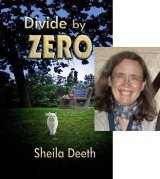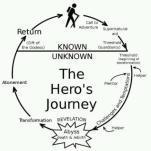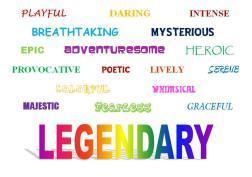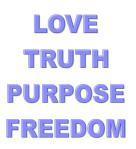Pat Bertram's Blog, page 251
November 29, 2012
UnSocial Networking
 I’m starting to play rough with Facebook, unfriending people with the same abandon I once friended them — sort of reverse social networking. (Would this be called Unsocial Networking or Social UnNetworking?) Start with 5000 people at random, and then one by one, remove the annoying ones. You know the people I mean:
I’m starting to play rough with Facebook, unfriending people with the same abandon I once friended them — sort of reverse social networking. (Would this be called Unsocial Networking or Social UnNetworking?) Start with 5000 people at random, and then one by one, remove the annoying ones. You know the people I mean:
1. The authors who send you one message after another asking you to like their FB page, download their book, check out their website, read their blog. I’m not talking about notifications or the posts that show up in your feed, but repeated private messages. I now have a new policy: if you spam me once, I might let it go if I know you or if I’m in a good mood, but if you send the same spam message a second time, I will unfriend you. Friends don’t spam friends.
2. The rabid political lobbyists, those who are always lobbying for their party, their agendas, their preferred candidates, their right or left wing propaganda. These people aren’t interested in being friends. They want power, even if at one remove.
3. The uncompromising religious folk, those who never acknowledge that another person’s religious beliefs might be as sacred as their own. These people remind me of the folk in Emo Phillips joke. This joke was voted the best God joke ever, but was not credited to Emo Phillips, and truly, it’s such a classic, he needs to be acknowledged as the author. I don’t remember many comedians, but I do remember the delightfully waifish Emo telling this story:
Once I saw this guy on a bridge about to jump. I said, “Don’t do it!” He said, “Nobody loves me.” I said, “God loves you. Do you believe in God?”
He said, “Yes.” I said, “Are you a Christian or a Jew?” He said, “A Christian.” I said, “Me, too! Protestant or Catholic?” He said, “Protestant.” I said, “Me, too! What franchise?” He said, “Baptist.” I said, “Me, too! Northern Baptist or Southern Baptist?” He said, “Northern Baptist.” I said, “Me, too! Northern Conservative Baptist or Northern Liberal Baptist?”
He said, “Northern Conservative Baptist.” I said, “Me, too! Northern Conservative Baptist Great Lakes Region, or Northern Conservative Baptist Eastern Region?” He said, “Northern Conservative Baptist Great Lakes Region.” I said, “Me, too!”
Northern Conservative†Baptist Great Lakes Region Council of 1879, or Northern Conservative Baptist Great Lakes Region Council of 1912?” He said, “Northern Conservative Baptist Great Lakes Region Council of 1912.” I said, “Die, heretic!” And I pushed him over.
I’m now down to about 1650 friends on Facebook, and who knows, at the rate I’m pushing people off the bridge, I might end up with only one or two hundred connections, but those will be real friends — people I enjoy following, whose blogs I read, and whose opinions I respect. And never, ever, do they spam me or lobby me or disrespect my beliefs or unbeliefs.
***
Pat Bertram is the author of the conspiracy novels Light Bringer, More Deaths Than One, A Spark of Heavenly Fire, and Daughter Am I. Bertram is also the author of Grief: The Great Yearning, “an exquisite book, wrenching to read, and at the same time full of profound truths.” Connect with Pat on Google+
Tagged: annoying social networkers, best God joke ever, Emo Phillips, Facebook, friending, unfriending


November 28, 2012
What Do You Do If Someone Posts an Insulting Comment on Your Blog?
 I don’t often get negative comments on this blog.
I don’t often get negative comments on this blog.
For one thing, my posts tend not to be controversial — they’re more of a way of chronicling my journey through life and the writing life. It’s hard for someone to argue that I’m getting it wrong when I can’t get it wrong. I’m being me, and who can argue with that?
For another thing, my readers tend to be intelligent and kind, and they give thoughtful responses that add to the conversation instead of posting negative comments that bring the discussion to an abrupt end.
The other day, however, someone left an insulting comment on my article How Many Books Are Going to be Published in 2012? (Prepare for a Shock) that I didn’t know how to handle. That is not my favorite post by any means, in fact, it’s one of the few I wish I had never written. I’d only written the article as a way of trying to make sense of the current book climate and to show the meteoric increase in the number of books available, not to establish myself as any authority on the subject. And yet it’s become my most quoted article, and the one most frequently linked to.
It’s no wonder that an insulting remark landed on the post. Someone commented: “why would anyone bother to pay attention to a blog which starts off with uninteresting stuff about the author, and then gives data without a source? takes all types, I guess.”
I guess it does take all types. When I see an article that doesn’t lead up to the hype, I merely pass on by without stopping to leave a comment. But, for whatever reason, that person left a comment. I didn’t know whether to delete it or approve it. And if I posted it, I didn’t know whether to respond to it or ignore it. Admittedly, it’s not much of an insult, but it still put me in a quandary.
I asked my blogger friends on Facebook what they do in such a circumstance, and got a whole range of answers from “delete it” to “find where the person lives and go beat them up.” Some people thought that if it had merit or if it said more about the commenter than me, that I should post it but not respond. Some said that if it was a business blog, to delete the comment, that it wasn’t good to have snipers in your store.
The comment now seems innocuous, and the commenter has a point, why would anyone bother to pay attention to that particular blog post? (Though I did give a source, just not a link to the source.) Still, I left his remark in comment limbo until just a few minutes ago. I found the deciding factor in You and Your Blog Suck: 7 Steps to Responding to Negative Comments, a blog post by Marc Ensign. He said, “By deleting it you are telling your readers that they are welcome to say whatever they want as long as they agree with you. The only time I would consider deleting a post is if it was obscene or offensive to your readers.”
Since the comment under consideration is not obscene, not offensive to my readers, not even much of an insult, I took a deep breath and approved the comment.
So, what do you do if someone posts an insulting remark on your blog? Do you delete it or do you approve it so posts where everyone can see it? If you post it, do you answer it or ignore it?
***
Pat Bertram is the author of the conspiracy novels Light Bringer, More Deaths Than One, A Spark of Heavenly Fire, and Daughter Am I. Bertram is also the author of Grief: The Great Yearning, “an exquisite book, wrenching to read, and at the same time full of profound truths.” Connect with Pat on Google+
Tagged: blog discsussion, Insuling comments on blog, negative blog comments, responding to blog comments, responding to negative blog comments


November 27, 2012
Thirty-Two Months of Grief
 I haven’t been writing much about grief lately. It’s been thirty-two months — 977 days — since my life mate/soul mate died. In that time, many others have suffered grievous losses, and to continue mentioning my grief seems like all I’m doing is whining. Still, this is my loss, and what other people experience, no matter how horrific, doesn’t lessen my sorrow. I don’t have the same sort of raw pain that I did at the beginning, of course, nor do I have the gut-wrenching angst that so often bedeviled me during those first months, but I do experience bouts of sadness and yearning.
I haven’t been writing much about grief lately. It’s been thirty-two months — 977 days — since my life mate/soul mate died. In that time, many others have suffered grievous losses, and to continue mentioning my grief seems like all I’m doing is whining. Still, this is my loss, and what other people experience, no matter how horrific, doesn’t lessen my sorrow. I don’t have the same sort of raw pain that I did at the beginning, of course, nor do I have the gut-wrenching angst that so often bedeviled me during those first months, but I do experience bouts of sadness and yearning.
My emotions are on a slow Ferris wheel ride, usually sliding down into sadness on Saturdays, the day he died — a day that apparently is etched in my very psyche — and then a gradual climb up to hope and possibility on Monday and Tuesday.
Even when Saturday’s sorrow is fleeting, as it often is now, I find that I am at my most vulnerable then, and any hurtful word, thoughtlessness, or setback can send me spiraling down into grief. Without him to talk to, without my being able to casually mention the slights and so slough them off, the unkindnesses take hold and remind me that I am alone. Which reminds me that he is dead. Which makes me grieve.
I can handle being alone. I can even handle his being out of my life. What I can’t handle is his being dead. It’s possible he still exists somewhere, perhaps lolling on the shores of some cosmic sea, a cat purring in his arms, but I have no way of knowing for sure. All I know is that he is out of this earthly life. Gone. Deleted. I still cannot wrap my mind around that. And I still can’t help feeling that he was cheated out of a couple of decades of life.
Sometimes I pretend to believe that he left so that I could experience life in a way we couldn’t experience together, but other times, especially on the day of the month that he died — such as today — I find it impossible to pretend that this new experience of life alone is positive thing. And even if it is for the best, it comes at the cost of his life, and that is too big of a price to pay.
If I sound discouraged today, the truth is, I am dis-courage-d. Have lost my courage. Sometimes I am strong and forward looking, but on this 977th day of his goneness, I am unable to gather the courage to believe that any good will come from his being dead and my being alone. I’d give anything to see him one more time, to have him smile at me or say an encouraging word, but no matter how much I yearn for such an encounter, it’s not going to happen in this lifetime.
I am used to the ups and downs now, so I know all I have to do is hang on, and in a day or two, when I am less tired perhaps, I’ll find my courage again. And some day I might even come to believe that this new experience of life alone truly is a positive thing.
***
Pat Bertram is the author of the conspiracy novels Light Bringer, More Deaths Than One, A Spark of Heavenly Fire, and Daughter Am I. Bertram is also the author of Grief: The Great Yearning, “an exquisite book, wrenching to read, and at the same time full of profound truths.” Connect with Pat on Google+
Tagged: dead, death of a soul mate, Ferris wheel, living alone, spiraling down into grief, Thirty-Two Months of Grief


November 26, 2012
The Next Big Thing
A couple of months ago, Malcolm R. Campbell, author of “The Sun Singer” and “Sarabande”, invited me to participate in a blog chain, where everyone who is tagged answers a few questions about their work in progess, their next big thing. Since then, I have been asked to participate by Sheila Deeth and Dellani Oakes, and I was tagged by Emma McCoy.
 I’m not really working on anything of my own right now. I have a half-finished novel in hiatus, disjointed chapters of another novel (my attempt at doing NaNoWriMo a couple of years ago), and a short story I intended to finish this month but keep forgetting about. So, I’ve chosen to talk about Rubicon Ranch, a serial I’m writing with several other Second Wind authors. The first book in the series, Rubicon Ranch: Riley’s Story is available online or as a free download in the format of your choice. Currently, we are working on the second book in the series, and when this book is finished, we will continue with the serial in the hopes that one day it really will be the next big thing.
I’m not really working on anything of my own right now. I have a half-finished novel in hiatus, disjointed chapters of another novel (my attempt at doing NaNoWriMo a couple of years ago), and a short story I intended to finish this month but keep forgetting about. So, I’ve chosen to talk about Rubicon Ranch, a serial I’m writing with several other Second Wind authors. The first book in the series, Rubicon Ranch: Riley’s Story is available online or as a free download in the format of your choice. Currently, we are working on the second book in the series, and when this book is finished, we will continue with the serial in the hopes that one day it really will be the next big thing.
What is your working title of your book?
Where did the idea come from for the book?
This is a continuation of the Rubicon Ranch serial. It was conceived as a blog promotion, and it captured the imagination of several Second Wind authors. We each created a character and have sole creative control of that character, which makes the serial seem like a cross between a novel and a role playing game.
What genre does your book fall under?
Mystery, suspense, thriller. Take your pick.
Which actors would you choose to play your characters in a movie rendition?
My character is a forty-something widow, five feet five inches tall, grey eyes, brown hair, fit, oval face, flawless skin. Does that sound like anyone you know? If not, I’d choose any famous actress to play the part to make sure the movie was a success.
What is a brief synopsis of your book?
Residents of Rubicon Ranch are finding body parts scattered all over the desert. Who was the victim and why did someone want him so very dead? Everyone in this upscale housing development is hiding something. Everyone has an agenda. Everyone’s life will be different after they have encountered the Rubicon. Rubicon Ranch, that is.
Will your book be self-published or represented by an agency?
It will be published by Second Wind Publishing since they are the ones sponsoring the project.
How long did it take you to write the first draft of your manuscript?
We’ve been working on the current Rubicon Ranch story about eight months, and it’s not yet finished. You can find the work in progress here: Rubicon Ranch: Necropieces
What other books would you compare this story to within your genre?
I don’t know of any other book like this. It’s written by eight different authors, each taking a turn to write their chapter. We are writing blind — no outline, no idea of who is the killer, and we won’t know until the end. The authors are all presenting their character as a villain, and at the end, we will decide which one did it.
Who or what inspired you to write this book?
I did a round robin with a writers group, where someone started a story, and each writer took a turn at continuing the story. So many of the authors seemed to sabotage the story and other characters by introducing ridiculous elements, that I wondered what would happen if there was a bit more control, where one author could not sabotage another’s efforts. And so Rubicon Ranch was born.
What else about your book might pique the reader’s interest?
You can sign up on the Rubicon Ranch blog to receive notification of new chapters of Rubicon Ranch: Necropieces as they are posted, or you can check back every week. Things are heating up, and each character’s secrets are being revealed. I hope you will stop by Rubicon Ranch and join the fun! Several wonderful Second Wind authors are involved in the project: Dellani Oakes, Deborah J Ledford, Lazarus Barnhill, Mickey Hoffman, JJ Dare, Claire Collins. And me, of course.
Several gallant bloggers have agreed to continue with this blog chain. During the week of December 3rd, look for The Next Big Thing blog posts by Joylene Nowell Butler, A.F. Stewart, Sherri Hansen, Jerold Last, and A. J. Race. It should be interesting to find out what everyone is working on!
***
Pat Bertram is the author of the conspiracy novels Light Bringer, More Deaths Than One, A Spark of Heavenly Fire, and Daughter Am I. Bertram is also the author of Grief: The Great Yearning, “an exquisite book, wrenching to read, and at the same time full of profound truths.” Connect with Pat on Google+
Tagged: Malcolm R. Campbell, Rubicon Ranch, Second Wind Publishing, The Next Big Thing


November 25, 2012
Promoting Other Authors
 Author, blogger, reviewer Sheila Deeth, interviewed me for her blog, and here is one of the questions she asked, followed by my response:
Author, blogger, reviewer Sheila Deeth, interviewed me for her blog, and here is one of the questions she asked, followed by my response:
You are always such an encouragement to other writers, posting excerpts, interviews, character interviews, offering advice, sharing experiences. . . . What do you think drives your generosity?
I don’t consider such online activities as generosity, just part of the internet experience. I never quite knew what to do on Facebook, for example — I don’t like games or sharing cute animal photos or any of the other things that clog the news feed — so I built up a couple of discussion groups. It gave me a way of interacting with people and besides, I love talking about the whole writing process. As for the interviews and such. Well, that was a fluke. My personal blog is blue, but I figured out how to change the color, so just for fun, I did an orange blog, a green one, a red one, a purple one, and then I had to figure out what to do with all of them. A book blog and an interview blog seemed the obvious use for two of them since I came in contact with so many authors. The interview blog especially has a fairly good rating, and it seems a waste if I don’t have an interview to post, so I keep promoting it.
In the back of my mind, I hoped that all the author karma I’m building up would somehow help catapult my books to stardom, but so far, it hasn’t happened. But that was never the point of promoting authors on my blogs. As I said, that was mostly a fluke.
(You can find the rest of the interview here: My thanks to author Pat Bertram)
That is only part of why I promote other authors on my blogs. The truth is even less altruistic than I made it sound. I’ve had those two author blogs for several years and just posted sporadically until a couple of years ago. After the death of my life mate/soul mate, I got addicted to a few of the games on my computer — Spider Solitaire, Mahjong Titans, and FreeCell. I so desperately needed for something to work out, I kept playing the games over and over until I won. I couldn’t redo my life, so there was some sort of comfort in redoing something — anything — until it came out right. And the games were a way of taking a vacation from the pain that all but consumed me at times.
When I realized how obsessed I had become, I decided to go cold turkey and give up the games, but I still needed something to do to break the hold of grief when it got too much for me to handle, so I substituted blogging — posting excerpts and author interviews to promote other authors in addition to daily blogging here on Bertram’s Blog. I figured that at least I would be doing some good with my online activities, which is something that cannot be said about computer games.
As for why I keep up with promoting other authors now that my grief is dissipating . . . well, it’s the right thing to do. If you want me to interview you, you can find the questions and instructions here: Author Questionnaire
***
Pat Bertram is the author of the conspiracy novels Light Bringer, More Deaths Than One, A Spark of Heavenly Fire, and Daughter Am I. Bertram is also the author of Grief: The Great Yearning, “an exquisite book, wrenching to read, and at the same time full of profound truths.” Connect with Pat on Google+
Tagged: addicted to games, authors promoting authors, breaking the hold of grief, interviews with authors, promoting other authors, Sheila Deeth


November 24, 2012
What Difference Do You Want to Make as a Writer?
 In Worlds of Wonder, David Gerrold says, “As a human being, you make a difference. Simply by existing, simply by being in the room you make a difference. What kind of difference do you want to make as a writer?”
In Worlds of Wonder, David Gerrold says, “As a human being, you make a difference. Simply by existing, simply by being in the room you make a difference. What kind of difference do you want to make as a writer?”
This is a time of flux for me, and I no longer know what difference I want to make as a writer or what I want to say.
The first book-length piece I wrote was a fictional autobiography (sort of). I had a lot of matters I needed to work through and thought it would be a good way to do it. The writing helped, as I’d hoped, but the book was so bad I don’t consider it one of my finished novels, but I do consider it my apprenticeship.
The first real novel I wrote because I wanted (needed) to make some money. Silly me! I didn’t know at the time how few people ever made a living off their books. I also wanted to talk about the Vietnam war, and get rid of a lot of misconceptions that had arisen about why it happened and what it was supposed to accomplish. Most of those parts ended up being deleted in the rewrites, and the book became more about mind control and less about Vietnam.
The second novel I wrote because of Albert Zuckerman’s book How to Write the Blockbuster Novel. I wanted to write a blockbuster novel and make a ton of money and to expose some of the experiments that had been perpetrated on humans. In many ways that book is my best work, but so far, it hasn’t reached anywhere near the readership I had hoped for.
The third novel I wrote because I read The Writer’s Journey by Christopher Vogler and I wanted to write a mythic journey story. And debunk a lot of the Hollywood myths about the mafia. And make a lot of money.
The fourth novel I wrote to present a different way of looking at the world and to debunk UFO myths. And to make money, of course. This was actually the first book I conceived after I finished my apprenticeship. It just took me five years to get the whole thing worked out and to finish the massive amounts of research necessary.
My current novel — more of a work-in-pause than a work-in-progress — was supposed to be my declaration of independence from the dictates of the publishing industry and my efforts at making a living by writing. It was supposed to be a silly story, and when it started turning into something deeply metaphysical, I lost my way. And so it sits, waiting for me.
The thing I’ve always said to people via my books is: “Beware. Nothing is as it seems. You are being lied to, and have always been lied to,” but I’m not certain I want to continue with that theme. Don’t know where I am going with my writing. Can you get anywhere if you haven’t a clue?
I’ve never really had any interest in writing the great American novel (or the great global novel), but for some reason lately, I’ve been getting the feeling that I want to get so good at both storytelling and writing that I will not be ignored. I have a hunch I am at still at the beginning of my journey as a writer, though I have no idea where I will end up. I’m hoping I will be the hero in my own journey, transformed into a powerful writer who can make a difference, even in a small part to people who might someday read my books.
Meantime, I’m sticking with blogging. That’s part of my journey, too.
What about you? What difference do you want to make as a writer?
***
Pat Bertram is the author of the conspiracy novels Light Bringer, More Deaths Than One, A Spark of Heavenly Fire, and Daughter Am I. Bertram is also the author of Grief: The Great Yearning, “an exquisite book, wrenching to read, and at the same time full of profound truths.” Connect with Pat on Google+

November 23, 2012
If People Are the Same, Why is the World Different?
 This world of the early twenty-first century seems completely different from the world of fifty years ago, and for some reason yesterday, that struck me as odd. Except for the accoutrements of our lives, such as computers and clothes, why would things be different? Most people want the same things now as they wanted then — a safe world for their children to grow up in, a degree of comfort and security and happiness, a chance to succeed either in their chosen career or in their daily lives, freedom to live the best way they know how. So why is life today so different from what it used to be?
This world of the early twenty-first century seems completely different from the world of fifty years ago, and for some reason yesterday, that struck me as odd. Except for the accoutrements of our lives, such as computers and clothes, why would things be different? Most people want the same things now as they wanted then — a safe world for their children to grow up in, a degree of comfort and security and happiness, a chance to succeed either in their chosen career or in their daily lives, freedom to live the best way they know how. So why is life today so different from what it used to be?
Admittedly, those were not the halcyon days people remember them as being. There was strong prejudice in certain areas in the United States, though not all people or neighborhoods or cities participated in the prejudice against blacks, woman, gays. There did seem to be restrictions against what women could accomplish, though women who wanted to accomplish big things often managed to succeed anyway. But most women thought they had it good, staying at home, taking care of their husbands and children. Is it any better today when women are forced by circumstances or custom to work?
People are still basically the same, yet now married couples seem to be unable to find a way to stay together. Back then, divorce was rare, and now it is all too common. The number of single parent homes are increasing. Children are being shuffled between parents. Some children have too few parents, and some have too many. You’d think that with the fluidity of life today that people would be more accepting of each other, but our society is still pigeonholing both men and women, forcing them into roles they might not want. We seem to always be categorizing people, foisting labels on them, making them conform to fashionable ideas and attitudes. And we seem to be even more polarized now than ever before, whether religion or politics, with less tolerance for opposing points of view.
Looking back on those long ago days of the mid-twentieth century, it seems a completely different world. Children played in the streets, walked to and from school, rode their bikes to distant neighborhoods, ran errands for their mothers, walked to the park for pick-up games. Were things safer then? Or was it simply that people were not bombarded with images of peril on TV and the internet and so did not know how unsafe they were? No matter how graphic newspaper stories and photos were, no matter how detailed radio news became, they were still static words and images, without the horror that today is thrust into our lives in full color, making us fearful for our safety.
If things were safer then, and it isn’t an illusion of nostalgia, then why were things safer? As I mentioned, people want now what they wanted then. Is it simply that there are more people in the world? Is it that the neighborhood schools have been consolidated into district schools so that the neighborhood is no longer a separate entity? Is it that we move more frequently now so we ever gets to know our neighbors? Are we less trusting, perhaps, and if so, why? Does it make a difference that someone isn’t waiting at home when kids get home from school? Or maybe it’s that no one is home during the day and so whole neighborhoods are deserted, giving us a feeling of being ungrounded? Is it that two salaries or two jobs are necessary to maintain the same level of comfort that one mediocre salary could handle back then? If so, why is that? Is it simply inflation (or perhaps a conspiracy to kill the middle class as some people believe) or is it that more things are necessary now, that a comfortable life today needs more equipment than a comfortable life fifty years ago?
There used to be one car per family, one television, one telephone. (Some families had two of each, of course, but most only had one.) Now each person in each family seems to have their own mode of transportation, their own television, their own telephone, their own computer. Games were simple back then, too — a bat and ball, board games, jigsaw puzzles — and you needed someone to play with. Now expensive game consoles take the place of neighborhood companions. After school activities seem more structured now, though family life seems less structured — families eating meals together at a set time used to be the norm and now is a special occasion. But then, families themselves are different.
I don’t know if any of this is important or if it means anything. Whatever once was no longer exists, and we can only live in the world of today, but it does seem strange to me that despite people’s goals remaining the same, the world has changed so much.
***
Pat Bertram is the author of the conspiracy novels Light Bringer, More Deaths Than One, A Spark of Heavenly Fire, and Daughter Am I. Bertram is also the author of Grief: The Great Yearning, “an exquisite book, wrenching to read, and at the same time full of profound truths.” Connect with Pat on Google+
Tagged: are things worse today, is safety an illusion, predudice, twentieth century, twenty-first century, what people want

November 22, 2012
Giving Thanks for Words
 Every day I find something to be grateful for, even if it’s only that the sun is shining, that I once had a great love, that I have open spaces to explore (both in my head and in the world). Even when all else seemed bleak these past thirty-one months since the death of my life mate/soul mate, even when I had no hope, there was always something to be grateful for (most often that he was no longer suffering), so I don’t need to set aside a special day of thanksgiving.
Every day I find something to be grateful for, even if it’s only that the sun is shining, that I once had a great love, that I have open spaces to explore (both in my head and in the world). Even when all else seemed bleak these past thirty-one months since the death of my life mate/soul mate, even when I had no hope, there was always something to be grateful for (most often that he was no longer suffering), so I don’t need to set aside a special day of thanksgiving.
Still, during this season of giving thanks, there is something I am especially grateful for, something worth celebrating . . . words.
Words convey thoughts, ideas, hopes from one person to another. They connect us from continent to continent, enabling us to bond with like-minded people all around the world. I have exchanged words — and friendship — with people from New Zealand, Australia, Canada, the Nederlands, India. And for this I am grateful.
Words allow us to read and to write, to find entertainment and enlightenment in worlds created out of nothing but letters strung together. Words allow a story, concocted in one mind, to come to full realization in another. For most of my life, these worlds of words have been my life, or at least a major part of it. Now that I too am a world-creator, I am grateful for the words with which I build my stories.
Words give comfort, especially when distance (either geographic or emotional) does not allow a touch of commiseration. I am especially grateful for all the words of encouragement you (the readers of this blog) have given me during my time of grief, words that touched me. I hope some of my words touched you.
Words mean hope. With words, there is always the hope that we will be able to come to an understanding of each other, and perhaps find peace. (Of course, people would have to shut up long enough to listen to each other’s words; one-way words cause conflict and confusion.)
Words mean community and continuity. Words, both spoken and written, presuppose that there is someone to listen, and that is community. Telling our his-stories and her-stories to each other creates both community and continuity. They tell us who we were, who we are, and who we hope to become.
If there were no one to hear our words, if we existed solely in ourselves, we’d still need words to communicate our feelings and ideas to ourselves. This ability to put our thoughts into words gives us the power to know ourselves and to understand greater truths.
So this week, whether you celebrate the U.S. Thanksgiving or not, stop for a moment to give thanks for words. They are we.
***
Pat Bertram is the author of the conspiracy novels Light Bringer, More Deaths Than One, A Spark of Heavenly Fire, and Daughter Am I. Bertram is also the author of Grief: The Great Yearning, “an exquisite book, wrenching to read, and at the same time full of profound truths.” Connect with Pat on Google+
Tagged: communication, significance of words, Thanksgiving, touched by words, words

November 21, 2012
Today Is a Good Day and I Am Feeling Fine
 On the advice of a friend, I have been doing a daily affirmation, telling myself I am happy, but it doesn’t work for me because I’m not sure I want to be happy. Un-unhappy, yes. Unsad, yes. Contented, of course. At peace, for sure. But happy? It’s not a state I’ve ever aspired to. I’ve always believed other things are much more important, things such as love, truth, purpose, freedom, kindness, integrity. Happiness means many different things to many people, but to me, happiness has an element of giddiness, of being glad to be alive, of effervescence, maybe. I prefer being centered, not tipping toward happiness or sadness, but unafraid of my tomorrows, satisfied with my yesterdays, at peace with my todays.
On the advice of a friend, I have been doing a daily affirmation, telling myself I am happy, but it doesn’t work for me because I’m not sure I want to be happy. Un-unhappy, yes. Unsad, yes. Contented, of course. At peace, for sure. But happy? It’s not a state I’ve ever aspired to. I’ve always believed other things are much more important, things such as love, truth, purpose, freedom, kindness, integrity. Happiness means many different things to many people, but to me, happiness has an element of giddiness, of being glad to be alive, of effervescence, maybe. I prefer being centered, not tipping toward happiness or sadness, but unafraid of my tomorrows, satisfied with my yesterdays, at peace with my todays.
To that end, I have changed my daily affirmation to “This is a good day and I am feeling fine.” This affirmation was gift from my yoga instructor, a short meditation to help us get through the holidays. She suggested we sit quietly, breathe in thinking “This is a good day,” and exhale thinking “I am feeling fine.” And it works for me. Of course, it helps that my days now are good, no real traumas, no sock-to-the stomach bouts of grief, just a slow gentle roll into sadness now and again, and a slow gentle roll back to center. The few tears, when they come, seem more nostalgic than debilitating.
The past couple of days have been especially good — lovely weather, clear skies, warm sun, breezes no stronger than a breath. And I am feeling fine. No overwhelming aches and pains, no worry or stress to weigh down my shoulders. I’m standing tall, breathing deep, opening myself up the world and the future.
I’m still not sure where I am going, what I am looking for, what I expect to find. For now, it’s enough that I am continuing to open myself to possibilities, continuing to believe that today is a good day and I am feeling fine.
***
Pat Bertram is the author of the conspiracy novels Light Bringer, More Deaths Than One, A Spark of Heavenly Fire, and Daughter Am I. Bertram is also the author of Grief: The Great Yearning, “an exquisite book, wrenching to read, and at the same time full of profound truths.” Connect with Pat on Google+
Tagged: daily affirmation, finding happiness after grief, grief and nostalgia, happiness, I am feeling fine, today is a good day


November 20, 2012
Love, Truth, Purpose, Freedom
 Linda Bonney Olin interviewed me for her blog the other day, and the interview turned out to be special, at least for me, because it made me realize what my values are and how those values find a place in my books.
Linda Bonney Olin interviewed me for her blog the other day, and the interview turned out to be special, at least for me, because it made me realize what my values are and how those values find a place in my books.
Linda asked me: Why did you choose to write A Spark of Heavenly Fire?
I responded: “A Spark of Heavenly Fire came about because of a Washington Irving quote: ‘There is in every true woman’s heart a spark of heavenly fire, which lies dormant in the broad daylight of prosperity; but which kindles up, and beams and blazes in the dark hour of adversity.’ When I read those words, I could see her, a drab woman, defeated by life, dragging herself through her days in the normal world, but in an abnormal world of strife and danger, she would come alive and inspire others. And so Kate Cummings, the hero of my novel A Spark of Heavenly Fire was born. But born into what world?
“I didn’t want to write a book about war, which is a common setting for such a character-driven story, so I created the red death, an unstoppable, bio-engineered disease that ravages Colorado. Martial law is declared, rationing is put into effect, and the entire state is quarantined. The world of the red death brings out the best in Kate and some of the characters she comes in contact with while bringing out the worst in others. Most of all, the prism of death and survival reflects what each of the major characters values most. Kate values love. Dee values purpose. Greg values truth. Jeremy values freedom. Pippi, who values nothing, learns to value herself.”
Next Linda asked if my fiction reflected my personal values, and I realized that of course my fiction (and non-fiction) reflects my values. Like Kate, I value love. Like Dee, I value purpose. Like Greg, I value truth. Like Jeremy, I value freedom. Like Pippi, I am learning to value myself. (You can read the entire interview here: Love, Truth, Purpose, Freedom: Pat Bertram.)
More than those qualities, though, I value kindness, and an innate kindness permeates all of my books despite the horrors the characters have to contend with. Though my heroes all have a love interest that helps form the story, none of my books can be classified as romances. The romance angle is not the main focus, and the romance is never conflicted. My couples in love treat each other kindly, showing a united front against the horrors of their world. For the most part, that’s the way I lived, so my characters can do no less.
***
If you would like to interview me, please let me know. I don’t usually open up this way, preferring to interview others, but turnabout is fair play. You can supply the questions, or I can, whichever you wish.
If you would like me to interview you instead, you can find the questions and instructions here: Author Questionnaire.
***
Pat Bertram is the author of the conspiracy novels Light Bringer, More Deaths Than One, A Spark of Heavenly Fire, and Daughter Am I. Bertram is also the author of Grief: The Great Yearning, “an exquisite book, wrenching to read, and at the same time full of profound truths.” Connect with Pat on Google+
Tagged: A Spark of Heavenly Fire, author's values reflected in their characters, blog interview, Linda Bonney Olin, values





